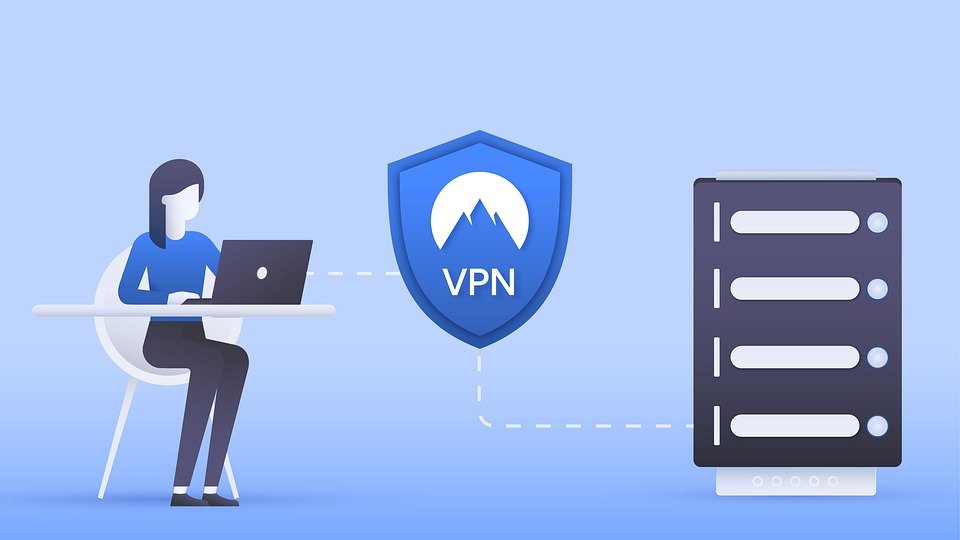Windows is one of the most widely used operating systems in the world. It is estimated that there are more than a billion Windows users worldwide. This extensive usage means that the amount of data available on Windows systems is enormous making them a target for hacks and other kinds of cyberattacks. A recent article published by Forbes reveals that unsigned firmware in laptop cameras, network interface cards, Wi-Fi adapters, and USB hubs puts millions of Windows users at risk of data theft and ransomware attacks.
These threats and vulnerabilities make the use of a VPN for Windows imperative. Here’s how a VPN for Windows works and how people can benefit from it:
How a VPN for Windows works
A VPN for Windows 10 works by plugging the source of all hacks. The user’s IP address, while they are connected to the internet, is what leads cybercriminals to their position and allows them to initiate attacks. VPNs masks this IP address to minimize the ability of any cyber attacker to track and infect the system. The service will effectively eliminate any chances of malware or other bugs being able to reach the system software or hardware.
Did you know that Windows 10, the latest version of the operating system comes with its VPN client too? Windows acknowledges the prevalent threat from cybercrime and provides users with the option to enable data security from within the system. This VPN client can serve as a great complimentary service to a comprehensive VPN but it limits functionality because you can only connect to specific servers and this restricts internet access to a great extent.
The benefits of a VPN for Windows
There are several benefits of a VPN and these go beyond just allowing internet freedom without any restrictions. The main features that a VPN offers revolve around providing elaborate cybersecurity. Cybercriminals and their tactics are constantly evolving and this trend is expected to continue for several years. Here are some of the advantages that a VPN brings when it comes to providing protection against a variety of threats.
Comprehensive cybersecurity
VPNs offer a wide range of options to protect Windows systems against malicious elements online. These include secure servers spread across the globe and state-of-the-art AES encryption services which makes it hard for hackers to steal data emerging from the system. Most leading VPNs have over the top features like public Wi-Fi security, secure DNS, dedicated IPs, internet kill switches, DDoS protection and a lot more besides. All these features are effective in protecting a Windows system against cybercrime threats.
Advanced encryption protocols
Encryption is a vital pillar of cybersecurity and the more elaborate it is the better. Highly rated VPNs make sure that they provide additional encryption protocols for users to support themselves and the protection of their online presence effectively. These advanced protocols can be added on top of the standard features so that the overall strength of encryption can be increased.
Some security steps to help you protect your data online
It is important to note that a VPN alone can’t provide complete cybersecurity. The biggest loophole at times in the protective guard is the user themselves. There are tools and measures that are imperative to be taken in order to ensure that the threat is minimized to a level where it becomes insignificant. Here are some of the most effective tips in this regard:
Use antivirus
A VPN is good at detecting threats that may be incoming but users need something that can deal with elements that have already made their way into the system. This is where a good antivirus comes into play. It screens the device on a regular basis to make sure that no harmful malware is hiding inside the device because viruses have the ability to sit in a device for a long period of time and the user only gets to know about them after it’s too late.
Update all software regularly
Software that is out of date is much more vulnerable to cyberattacks because the development team has stopped working on protecting it. This means that if your software is not updated you are a greater risk of hacks and other attacks as compared to when your applications are up to date.
Install a secure browser like Tor
Tor is one of the browsers that hide user IP addresses as default. The IP originally is public but when you use a browser like Tor, it is masked, to begin with. Tor is not a complete of an alternative of a VPN though because the latter provides a lot of extraordinary features whereas the browser is just a basic service that is not adequate on its own.
Always keep strong passwords
Many of us shy away from strong passwords because they are hard to remember especially since there are so many of them. This is one of the biggest mistakes to make. There are several secure password managers out there which can hold all passwords, auto-fill them when necessary and take the burden of remembering them off your shoulders.
Stay vigilant
Vigilance is one of the most crucial factors because scams like phishing, man-in-the-middle or other similar ones have nothing to do with VPN. Protecting from these all comes down to being aware and careful of the existence of these threats.
Conclusion
While a VPN has become a necessary tool to have these days, it is more important to have knowledge about the threats and being vigilant to protect against them.
Recommend Post:
- 8 VPN Facts – You Should Know About
- Top 7 Torrent Applications with VPN Support
- Five Tips to Make Sure Your Security Software Is Actually Secure






















